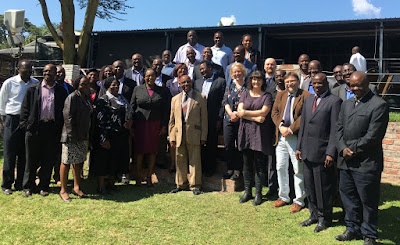In May 2018, researchers from the Rowett Institute and the Crop Technology Development Organisation (CTDO) co-hosted a stakeholder consultative workshop in Harare to identify a sustainable way forward to achieve long-term food production in Zimbabwe. Zimbabwe is a landlocked, low-income, food deficit country in sub-Saharan Africa. This year more than one million people faced food insecurity with current projections estimating that 2.5 million people are at risk. In addition to widespread poverty; HIV/AIDS, limited employment opportunities, liquidity challenges, recurrent climate-induced shocks and economic instability also have a significant impact and undernutrition particularly effects rural regions where diets lack diversity, with maize being the main staple crop.
The workshop was timely, especially considering that the Zimbabwe government are currently reviewing the agricultural policy framework. It was attended by a wide range of stakeholders including senior level representatives from the Zimbabwean Ministry for Agriculture, Agriculture Research Council, Oxfam, World Food Program, International Crops Research Institute for the Semi-Arid Tropics, as well as farmers’ associations, academics and industry. Coverage of the outcomes were disseminated via prime time evening and breakfast news, as well as in the national press. Recommendations arising from the event have been prepared as policy documents and there was a clear consensus that crop diversification through utilization of neglected and underutilized species (NUS) is critical to improving food and nutrition security in Zimbabwe. Production of these crops also supports working towards achieving national and global targets to reduce greenhouse gas emission, contributing further to mitigating against the climate emergency.

The second day was dedicated to field trips to develop a deeper insight into the various perspectives of nutritional security in Zimbabwe. This included visiting a solar water project, nutrition garden, maternal waiting home and primary school in the Mutoko District. Particularly relevant to the work on NUS was a visit to Chimukoko Seed Bank in the Mudzi District. Here the researchers had an opportunity to discuss seed diversification and storage with local woman farmers who displayed a wonderful array and detailed knowledge of underutilized crops and seeds. The Rowett and CTDO researchers are continuing to work together to secure further funding to work with other in-country partners to develop a strategy for crop diversification through adoption of NUS and an improved understanding regarding their inclusion in our diet.


